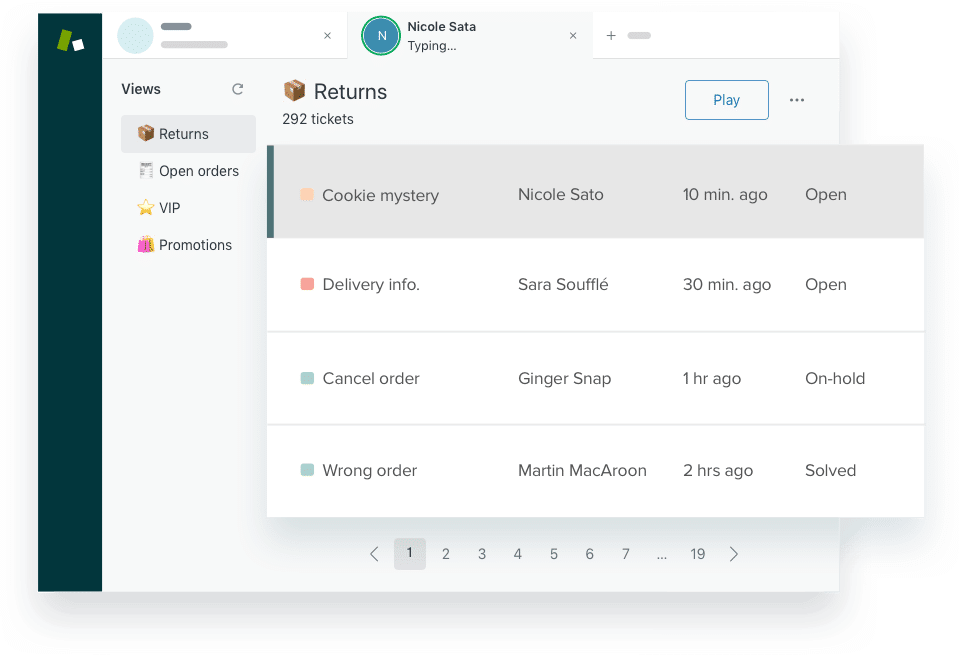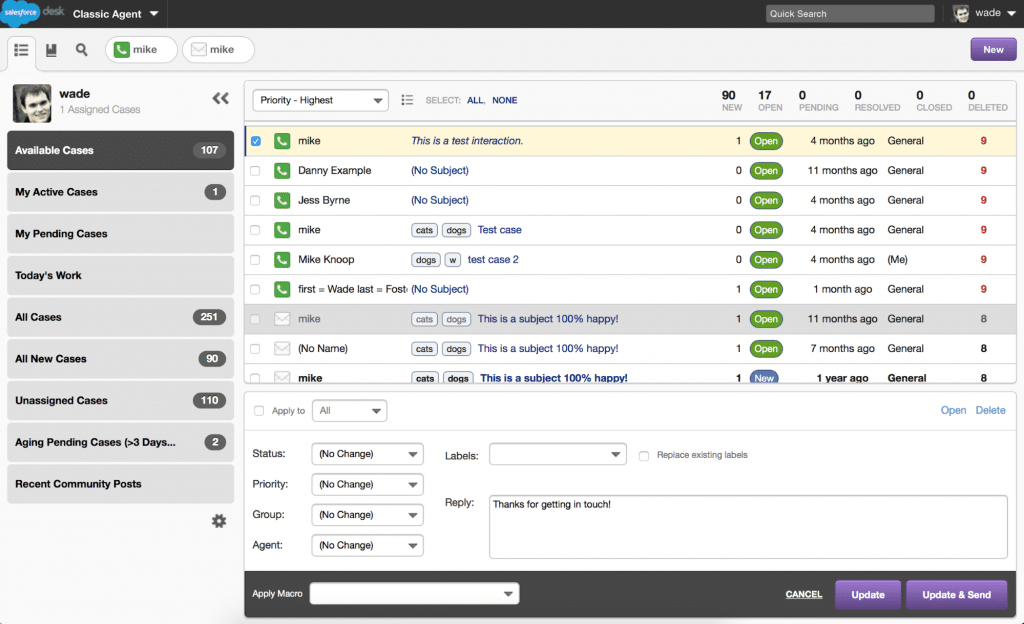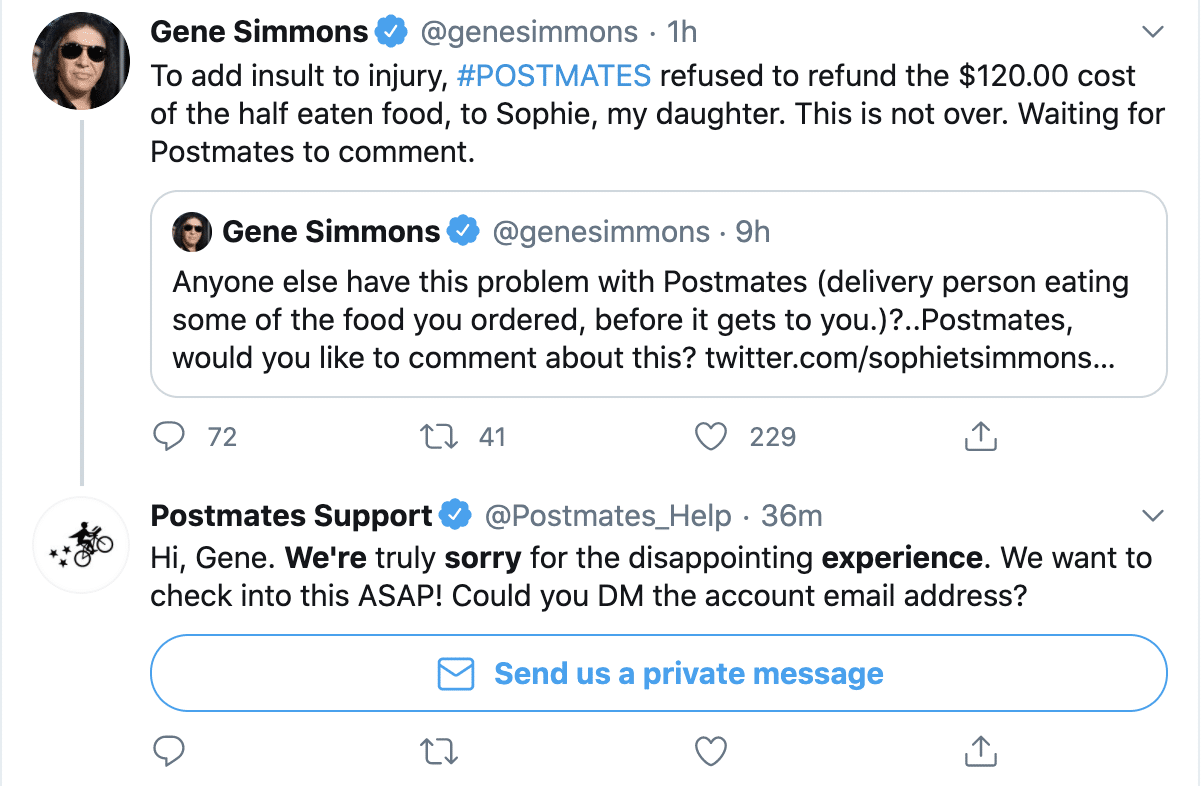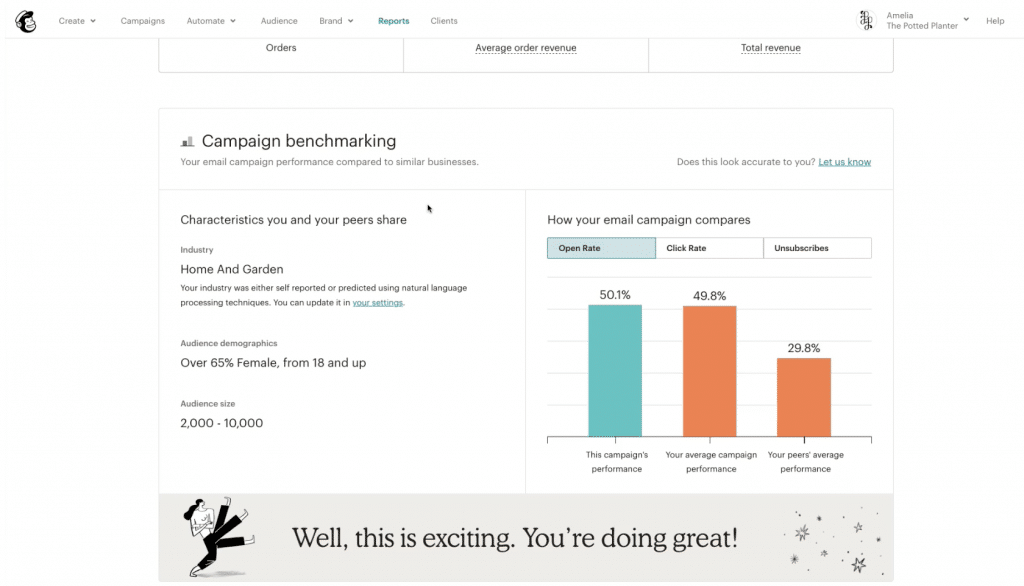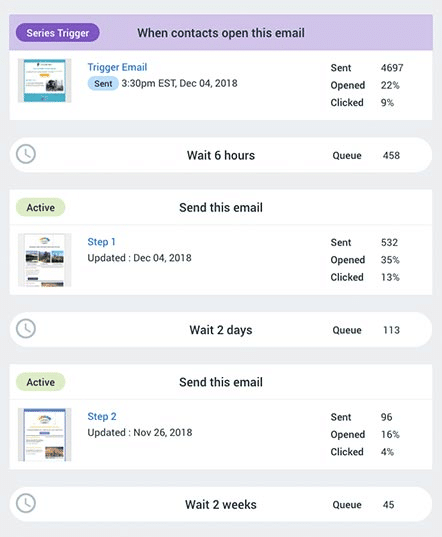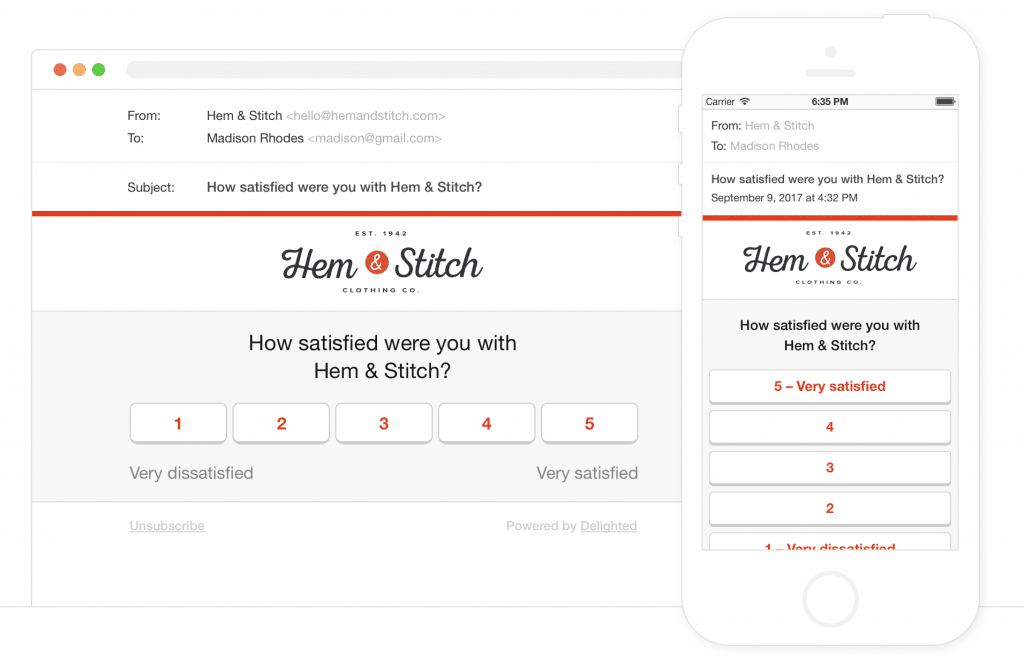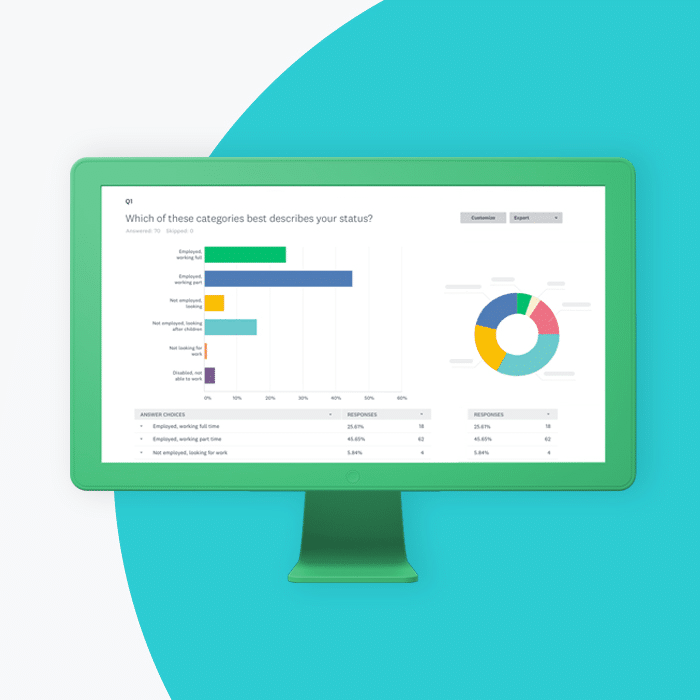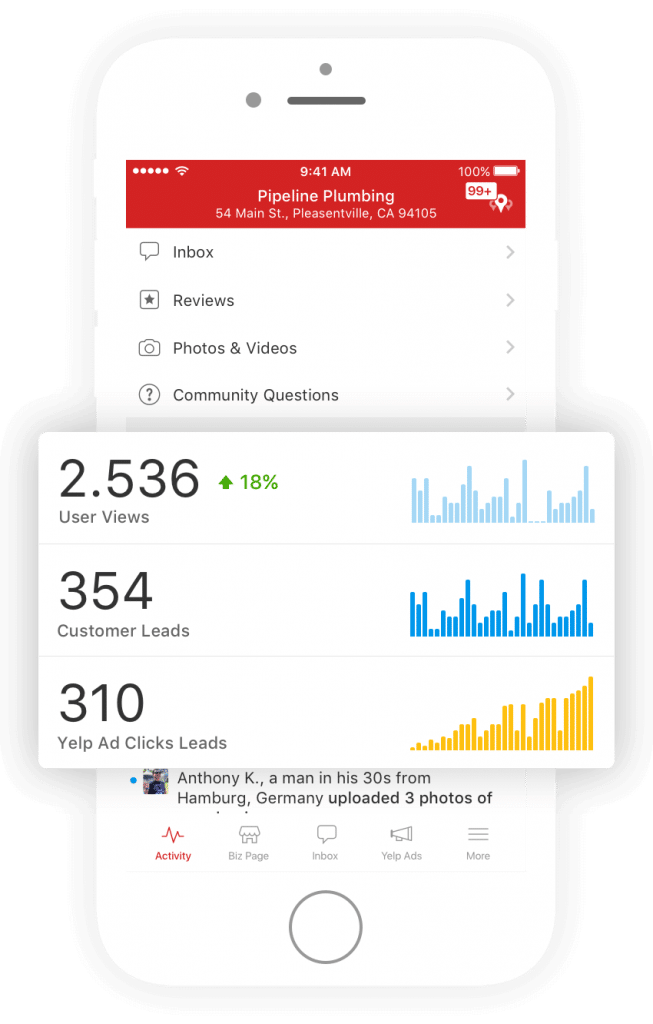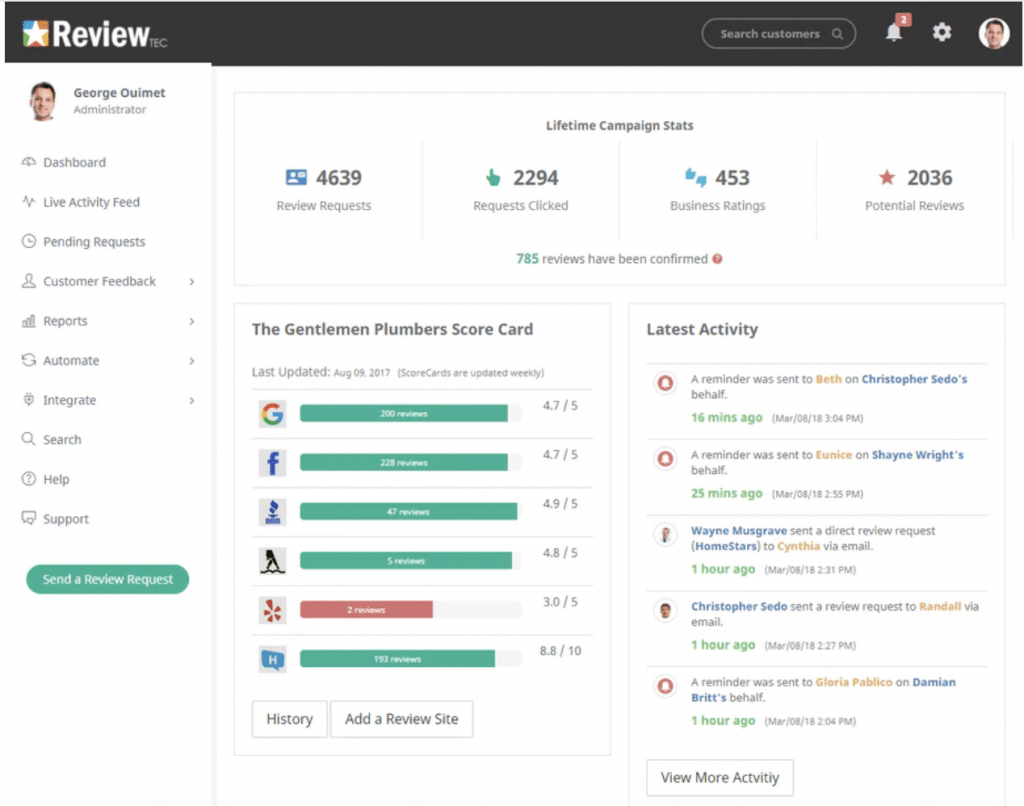Customer service is becoming more and more important, especially for small businesses. While you might not be able to compete with big-box companies on price, your ability to provide fast and friendly support for your customers is where you can really make your mark.
One major way smaller businesses are stepping up their customer service game: technology. Having the right customer service app can make your team of one (hopefully you have someone and it’s not just you doing this while wearing other hats) seem like a team of 10 to your customers.
Today, we’ll cover:
- Why do small businesses need customer service apps?
- How to choose the customer service app that’s right for your small business
- 13 affordable customer service apps for small businesses, categorized by:
⭐️⭐️⭐️⭐️⭐️ Ready to offer 5-star customer service? Get strategies for every stage of the customer journey with this free eBook.
Why do small businesses need customer service apps?
In the Dark Ages (okay, maybe like, twenty years ago), customer service teams handled most issues by phone. And while having a reliable phone system is still important for helping your customers, there is a growing need for more agile customer service. This could be via email, social media conversations, or self-service options on your website, like an FAQ page.
The more quickly and efficiently you can move a customer from problem to solution, the more likely that customer is to stick around, and recommend you to their friends. Luckily, there are lots of ways to improve your customer service with the help of affordable, easy-to-use apps.
How to choose the customer service app that’s right for your small business
The first step in choosing a customer service app is deciding what features you need. The best way to find out is to talk to your customer service representatives, since they have the day-in, day-out experience with the systems you have in place now.
Your service team can let you know where your pain points are, whether it’s high call volumes that can be solved with IVR or emailed service requests that get buried over time. From there, it’s time to prioritize and see where you can make the biggest impact for the cost.
An important note: most of the apps we’ve rounded up here are optional, and you’ll need to get with your team to weigh the pros and cons. But some of them have become pretty-much-mandatory if you want to stay on top of customer service issues out in the world (see: Yelp, Google, and the social media apps).
Here are 13 of our favorite customer service apps that can become powerful tools for your small business.
14 affordable customer service apps for small businesses
Customer service apps on a single platform
If you’re a growing small business, it might be time to streamline separate customer service processes and put all of your communication channels in one place. While this option does come with a price tag, your team will be better equipped to handle incoming requests across channels, and your customers will delight in faster resolution times on their concerns.
1. RingCentral’s customer engagement solutions
There’s a reason RingCentral beat Microsoft Teams as the leader in business communications. With HD cloud phone and video service, and an app that puts all your customer communications in one place, RingCentral customer engagement solutions makes it easy to keep your customers happy.
Want to take control of your customer experience on any channel—all while improving agent performance? You can use RingCentral’s tightly integrated suite of offerings to do it, no matter which social media channel your customers are on:
You’ll be able to connect customers with the right people on your team and get in touch with product experts in your business just by sending them a message. Ultimately, this all works together to deliver a smoother support experience across every channel for your customers.
Customer service involves a lot more than just phone systems (although we’d argue ours is the best): you should also be able to track and analyze customer support needs across social media messages, SMS, chatbots, and email.
RingCentral plays nicely with hundreds of apps, including productivity software, most CRM’s, and major email services. It also integrates with just about all of the customer service apps you’ll find in the rest of this roundup, so you can keep tabs on all of your customer interactions within one single, beautiful app.
🕹️ Get a hands-on look at how RingCentral works by booking a product tour:
💰 You can also use this calculator to see roughly how much your business could save by using RingCentral to support your team’s communications with clients, customers, and each other.
2. Zendesk
Much like RingCentral, you’ll get email, chat, calling, and social media interactions all in one place in a user-friendly interface that allows you to switch between communication channels to help customers get their questions answered.
Help desk apps
When you’re just starting out, you might be able to handle all of the customer requests you get on the fly. But as your business grows, so will the need for a system to handle customer service and give folks multiple ways to seek this support.
These help desk systems create a centralized hub for customer support activities, which can help your clients get the help they need more quickly.
3. Groove
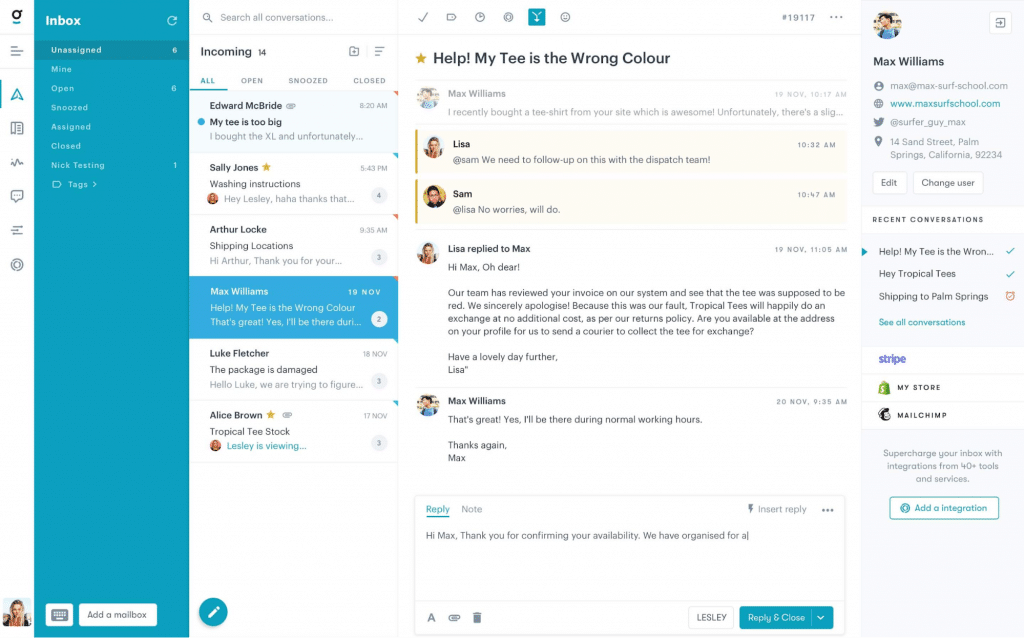
Groove is a powerful help desk app that has scalable tools for small businesses. With their most affordable option, you get your own support email inbox, so claims don’t get lost in the shuffle of your other emails. You and your team can leave private notes on different customer profiles, too, so everyone is up to speed with a customer’s history when dealing with an issue. Customer profiles also show you who’s been supporting your business over the years so you can reach out and cultivate a deeper relationship with them.
You’ll also get the chance to build your own knowledge base, where you can build out frequently asked questions, so customers can self-serve on some of the questions and concerns: a real win-win and timesaver.
4. Salesforce help desk software (formerly Desk.com)
Formerly Desk.com, Salesforce’s help desk software is an affordable option for small businesses. You’ll get all of your customer interactions in one place, where service agents can easily respond and make notes. And if you’re already using Salesforce, this is a great choice for tracking all stages of the customer journey in the same place.
Social media customer service apps
Businesses today see a real opportunity in using social media as a tool for customer service and experience. That’s because social platforms make it easy to update your information and to interact, both for the company and the customer, which means a quicker turnaround time to get problems solved. And thanks to the public nature of social media, customers know their concerns are more likely to be addressed instead of left hanging for all to see.
Here are the top two places you need to be, both to respond to direct contact from customers and to listen for issues that might be bubbling under the surface.
5. Facebook
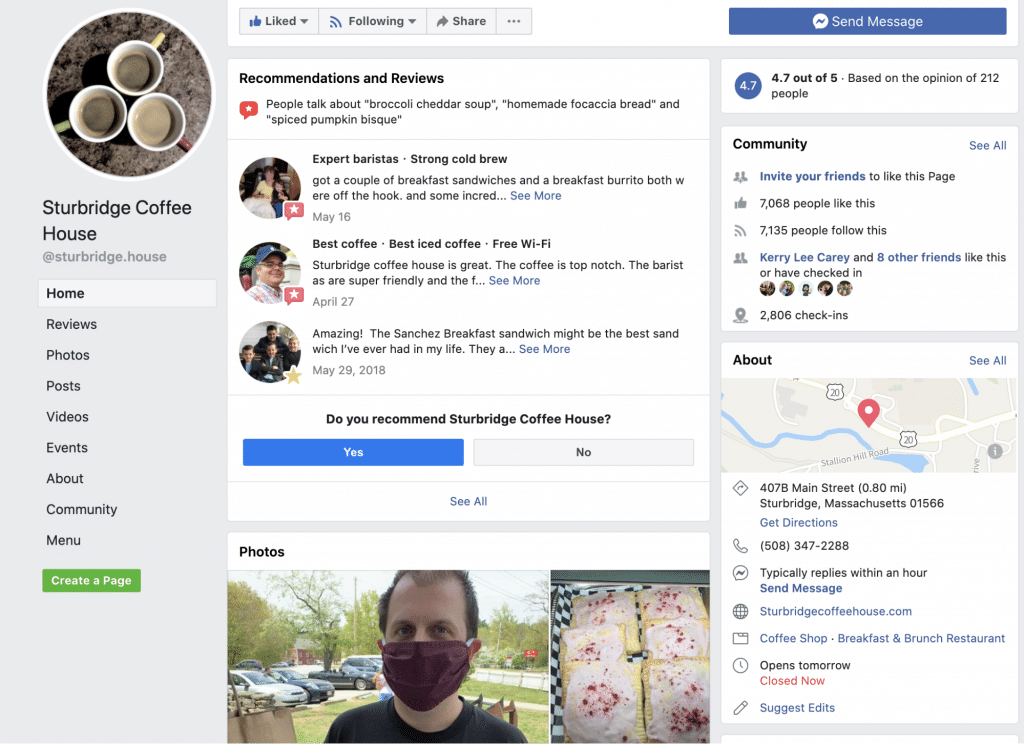
Picture it: It’s Memorial Day weekend, and after two full days of grilling in your backyard, you’re craving food made by someone who isn’t you. Your favorite pizza shop’s website says they’re open on Mondays… but does Memorial Day count? There’s no update saying they’re closed, but the website hasn’t changed much in the last 10 years. If you call to check, you know you’ll feel rushed to know what you want to order when you just wanted information.
Your next move: check the pizza place’s Facebook page. And sure enough, there’s a photo of the smiling owners, waving and letting you know they’re open on Memorial Day, along with a list of dinner specials. And everyone all lived happily ever after.
Businesses today use Facebook as a customer service tool more than ever. It’s easy to post updates in the moment from anywhere, thanks to the mobile app, and receive notifications when new customer comments come through. The social media juggernaut has also expanded its service features, including a place to post FAQs so people can self-serve without having to talk to someone.
6. Twitter
If you’ve been on Twitter for more than a few hours, you know lots of people use it as a way to reach businesses with their customer complaints. That’s because it’s such a public, share-friendly platform, it’s easy for bad press to spread, as evidenced by the 41 shares in one hour on Gene Simmons’s tweet about a bungled delivery order. And that’s nothing compared to how some complaints go viral.
Twitter offers some more automated ways for businesses to manage incoming comments from not-so-happy customers, including the “Send us a private message” feature, which takes the conversation into direct messages (DMs) without losing the thread of the chat for reference. There are also options for automated DMs and Customer Feedback Cards so you can gauge how well your service team is responding to people’s concerns.
Even if you don’t use the enhanced features, it’s a good idea to be on Twitter and search for your business name now and then as you grow, just to stay on top of and respond to issues before they grow.
Email outreach apps
Emails can be a great way to get proactive about your customer service. Instead of waiting for folks to come to you with issues, anticipate their needs and reach out with a beautifully branded message.
And thanks to the ever-changing technology available, you can do a lot more than just send emails with these apps.
7. Mailchimp
You might know Mailchimp for their email templates, but they offer a good amount of features beyond mailing campaigns at their Standard level. You’ll also be able to manage social platforms, build landing pages, and send simple customer feedback surveys.
Plus, you’ll have access to metrics dashboards so you can see how well your messages are being received and adjust your service accordingly.
8. Constant Contact
Very similar to Mailchimp in its features, Constant Contact has expanded beyond email marketing and task automation to allow you to build landing pages, manage social media channels and advertising, and more. One difference: with Constant Contact, you can also build out your own blog, if that rings your bell. There’s also an entire separate wing of Constant Contact dedicated to building websites if yours needs a refresh.
Customer survey apps
If you want to deliver better customer service, surveying your customers is a big piece of that puzzle. Why? You have a specific vision for your business: what your values are and how you think people will receive you. But it’s hard to know if any of that goodness is translating in the real world. Is anyone picking up what you’re putting down, or does something need to change?
Using customer surveys to learn about your customers’ perceptions of your business, products, and services can go a long way toward figuring out how to better align your vision and brand so you aren’t overpromising and under-delivering.
9. Delighted
The best time to survey your customers for the most accurate response is right after an interaction: a purchase, a customer service call, a visit to the office. And that’s where Delighted comes in.
With Delighted, you can have short and sweet surveys pop up after interactions with your service team and purchases so you get useful, real-time data. You’ll have the option to measure all kinds of metrics: Net Promoter Score (“How likely are you to recommend us?”), customer satisfaction (see above photo), and more.
10. SurveyMonkey
Looking for a more in-depth approach to gather customer feedback and improve customer service? SurveyMonkey might be a better fit, and it’s the more affordable option for the extra bells and whistles.
SurveyMonkey lets you create short or long surveys and gives you the ability to use logics to customize the questions, instead of having your customers wade through a bunch of satisfaction survey questions that don’t apply to them. For example, if you’re looking for feedback on a specific product during the survey, you can create a logic on the question “Have you used this product?” that skips every person who says “No” past other questions about that product.
Plus, SurveyMonkey has expanded how you can survey your customers beyond the usual “click this link.” You can survey via mobile chat, social media, and email, too. And when you’re done, you can see the data in clean, simple charts and graphs.
11. Zonka Feedback

With Zonka Feedback, you can measure customer experience at all customer touchpoints throughout their journey—on your website, after purchase, at exit intent, after service interaction, after ticket closure, and so on. With easy to customize surveys, omnichannel reach and in-depth reports, Zonka Feedback is a customer experience and feedback platform that gives you the data and analytics to take business decisions.
While customer service desks enable businesses to resolve customer issues, customer service feedback platforms like Zonka Feedback helps businesses to measure how effectively tickets are being resolved and how well the agents are performing.
By connecting Zonka Feedback to helpdesks and service desks, businesses can automate measuring customer effort and satisfaction after tickets are updated via email surveys and SMS surveys, sync responses and CX metrics to help desks, run agent performance reports, get notified of issues and resolve them immediately, identify key trends, and make data-based decisions to achieve business growth.
Customer review apps
The internet has made it super easy for people to go public with how they feel about your business. You can see how this can be a really positive thing, or a nightmare waiting to happen. The best thing you can do to make customer reviews your friend is to be where the conversations are happening.
We’ve already mentioned Facebook above; they’re a growing source of customer reviews via business pages. Here are a couple others you should look into:
12. Yelp for Business
Yelp started out as a restaurant review site, but it has become the most well-recognized spot for any and all customer reviews: from nail salons to landscapers to apartment complexes. And even if you haven’t set up your own free listing, you might already be on Yelp—as soon as someone wants to write a review for you, a listing is created.
If you haven’t already done so, you should set up or claim your listing so you can monitor conversations. The more quickly you can respond to people’s complaints on Yelp, the better.
13. Google My Business
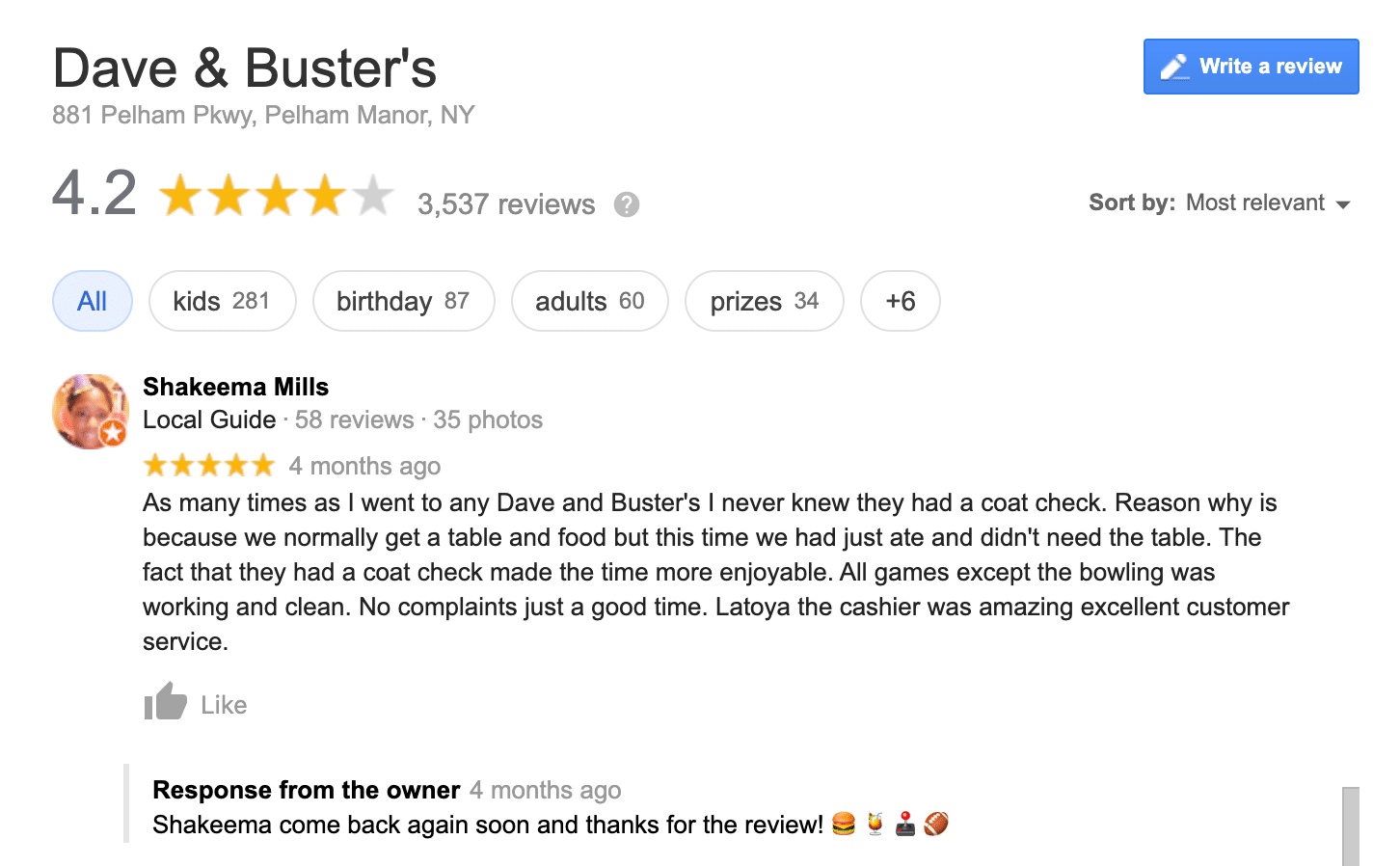
Google is another huge source for finding businesses and reviewing them. And with a free Google My Business account, you can keep your business listing up to date and respond to both positive and negative reviews that get posted.
14. ReviewTec
It can be awkward to ask customers to leave you a review if they’ve been happy with your service. But with word of mouth being such an important source of referrals for small businesses, you could be leaving money on the table if you aren’t asking. Luckily, there’s some technology out there that can make this easier.
ReviewTec is an app that automates an important part of customer service—specifically, the process of asking customers to review your business. After an interaction, you can text or email them a pre-written review request. The request comes with a special link that takes customers to the review site of your choosing so they can quickly and easily rate your service.
The best customer service apps: our #1 recommendation
Our biggest piece of advice when it comes to finding customer service apps as a small business: find a product that will make your life easier, not more complicated.
One place small businesses go wrong when adding in technology is trying to cobble together disparate pieces of customer service software to cover all their bases. But this puts your different types of customer contact in multiple apps, which can cause some people’s concerns to slip through the cracks and lead to losing satisfied customers.
The safest bet is to find a single platform for every customer interaction: from automated tickets and calls to knowledge bases, live chatbots, and CRM integrations.
Originally published Mar 31, 2020, updated Jul 25, 2024


